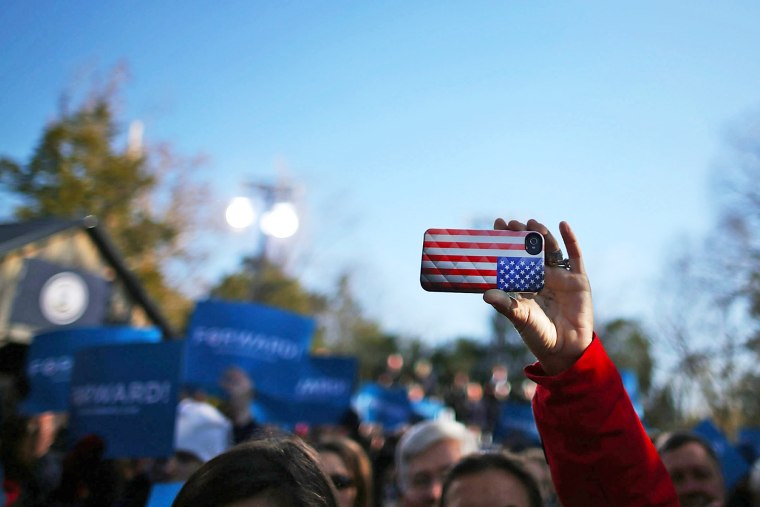The White House's "We The People" petition process has always struck me as a good idea. For those unfamiliar with the initiative, regular ol' Americans can submit questions and/or ideas
online; the public can vote on its favorites; and if enough people endorse the petition, the Obama administration will offer an official response.
Last year, the White House raised the threshold for minimum number of votes -- to get a response, an idea needs 100,000 endorsements -- in order to help weed out more trivial questions.
As long time readers may recall, one idea in particular
stood out as significant. Over 114,000 Americans endorsed a "We The People" petition on smartphone unlocking. R. David Edelman, the White House senior adviser for Internet, innovation and privacy, said the administration agreed with the petition. "It's common sense, crucial for protecting consumer choice, and important for ensuring we continue to have the vibrant, competitive wireless market that delivers innovative products and solid service to meet consumers' needs," he said at the time.
Smartphone owners may unlock the devices to switch wireless carriers after service contracts expire under legislation that passed Congress today and is headed for President Barack Obama's desk. The measure reverses a 2012 ruling by the Librarian of Congress that said unlocking phones violated copyrights. Unlocking is done by entering a software code so that phones can connect to a different network. A Senate bill that would legalize unlocking passed the House without a recorded vote. That sent the measure to Obama, who said in an e-mailed statement that he looks "forward to signing this bill." Obama called the measure "another step toward giving ordinary Americans more flexibility and choice, so that they can find a cell phone carrier that meets their needs and their budget."
This is the first time a White House petition led to an actual bill, that was actually passed, and will actually become law.
It's practically a textbook example of how the process was designed to work: a citizen submitted an idea to the White House; the public liked it; the administration threw its support behind it; and Congress passed a law. "We The People" petitions usually make headlines for being funny -- I trust everyone remembers last year's
Death Star discussion -- but here's an example of meaningful, substantive work getting done.
That, at least, is the good news.
The bad news, as Timothy B. Lee recently
explained, is that the bill passed Congress easily because it didn't go as far as it could have.
Unfortunately, Congress has chosen the narrowest possible approach to addressing the issue. Lawmakers have refused to rethink the Digital Millennium Copyright Act, the law that created the problem in the first place. [...] The legislation Congress approved focuses narrowly on the cell phone unlocking issue. It wouldn't provide exemptions for other innocuous activities that are restricted by the DMCA. And it doesn't rethink the bizarre system in which the Librarian of Congress -- an unelected official most people have never heard of -- has arbitrary power to decide, every three years, how people can use a wide variety of digital devices. The public furor over cell phone unlocking was an opportunity for a long-overdue re-think of the DMCA. But Congress is blowing that opportunity, fixing the most glaring symptom of the DMCA's dysfunction without considering a broader overhaul of the DMCA.
Lee's points are well taken, but in this Congress, baby steps are about all that can be expected.
If you have a smartphone and want to switch carriers after your contract runs out, your phone is now more than a fancy paperweight.
